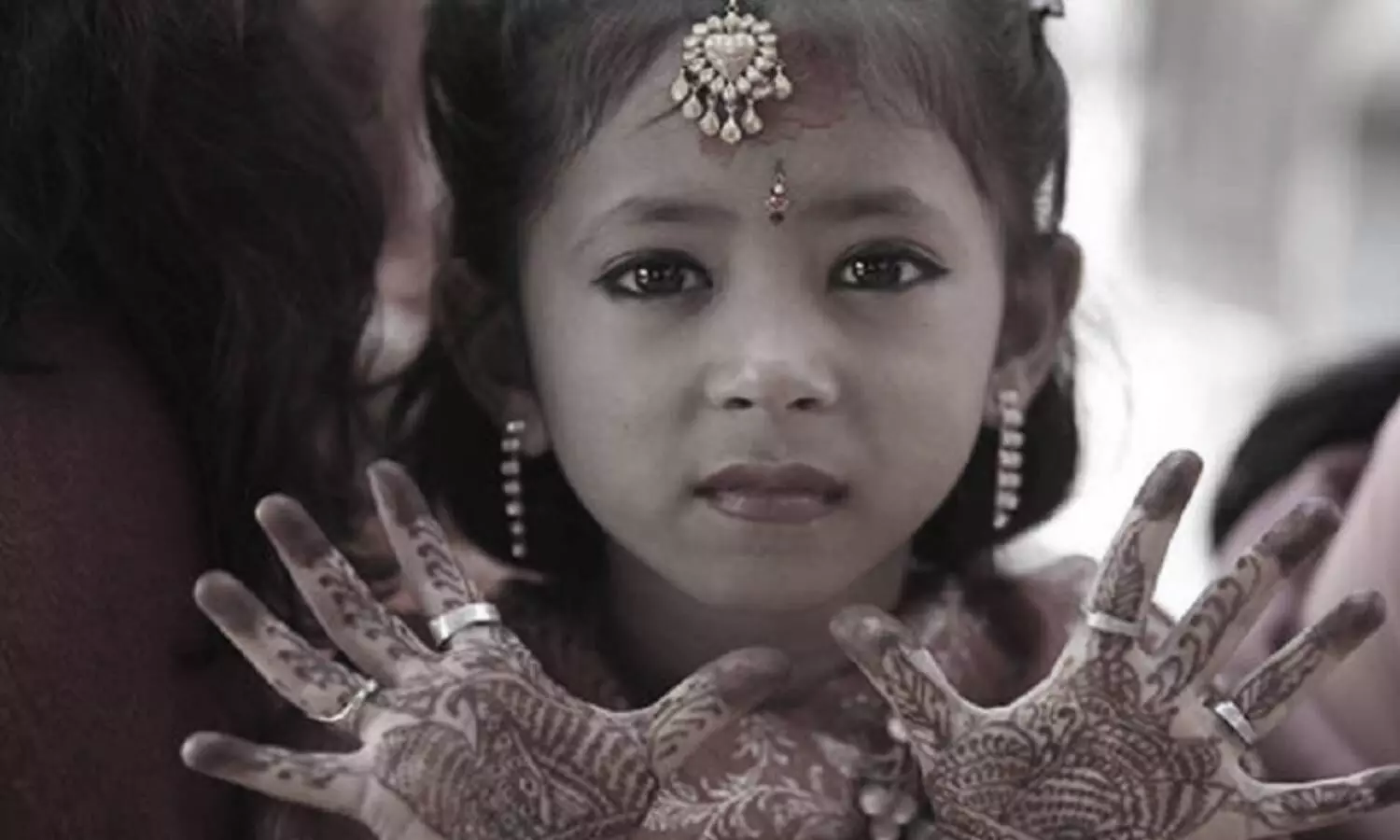Lost childhood: 23.5% women aged 20-24 married before 18 in Telangana, reveals NFHS-5
Out of the 33 districts in Telangana, Vikarabad recorded the highest number of child marriages in 2019-20, i.e., 39.8%, followed by Khammam with 35%, and Jogulamba Gadwal with 34.6%.
By Nimisha S Pradeep
Hyderabad: A month ago, in April, a 17-year-old girl was set to get married in one of the slums in Hyderabad. The local authorities somehow found out about it and visited the family. Apparently, the girl's father was sick and the family was worried he would not be able to see the girl get married. So, they asked her to quit her studies and decided to marry her off. The local authorities got a written assurance from the family that they wouldn't marry her off before she turned 18. A few days later, the girl's family took her to another village and got her married.
According to the National Family Health Survey 5 (NFHS-5) 2019-21, in Telangana 23.5% of women aged 20-24 married before turning 18 years. This is slightly less than the figures revealed by NFHS-4 (26.2%), yet child marriage is still a prevalent bane in society. Also, 27.4% of women from rural areas and 16.7% of women from urban areas of the state married before the age of 18.
Out of the 33 districts in Telangana, Vikarabad recorded the highest number of child marriages in 2019-20, i.e., 39.8%, followed by Khammam with 35%, and Jogulamba Gadwal with 34.6%. Nagarkurnool (32.6%), Wanaparthy (32.1%), and Medak (31.8%) also recorded a higher percentage of child marriages.
Hyderabad also recorded 10.6% illegal marriages. Medchal recorded the least percentage, 10.2%.
In December 2021, the Union Cabinet cleared the proposal to raise the legal age of marriage for women from 18 to 21, bringing it at par with men. Despite this legalisation, and other Central and state mechanisms to prevent child marriages, marriage for a woman is still considered a concept closely tied to her honour, according to society.
Govt schemes and child marriages
Varsha Bhargavi, advisor to the state Child Rights Protection Forum, says that two of the state government schemes in Telangana – Kalyana Lakshmi and Shadi Mubarak – are largely responsible for the increasing number of child marriages. "Added to our patriarchal society are these government schemes. People think let's just get the girls married and get the cash benefits under these schemes which amounts to over Rs. 1 lakh. These schemes are not empowering women. Moreover, seeing these government benefits, grooms have also started asking for more dowry," she says.
School: A safe roof
Child rights experts say that NFHS-5 figures on child marriages are a joke and that the numbers are highly underreported. Varsha says that during the pandemic, the numbers further increased and the post-pandemic figures will be worse.
Varsha says that when schools were shut down during the pandemic, a major protection mechanism was stopped. "In a school, children share their problems with their peers and sometimes even with teachers. When a girl is getting married and she doesn't show up in school for some days, her friends inquire about what happened to her. But when the pandemic hit the country, these protection mechanisms were also shut down. There was no way to track missing girls. Not just child marriage but even child abuse went underreported," says Varsha.
Complex dynamics in the field
Hima Bindu, child rights professional currently working in Jawaharnagar slums says it is a highly risky job to go out in the field and counsel the families to stop these marriages. "These communities in villages or slums are tightly knit and their attitude also differs," she says. A major issue that she highlights is the use of fake Aadhar cards. "Some of these girls have two Aadhar cards and one of them would have a date of birth earlier than the original year of birth which they show as proof of marriageable age. Aadhar cards are not an age proof, but they show that as an age proof and escape. There is no consensus about this between stakeholders," she adds.
Regarding incidents similar to the one in April, Hima wonders, "Why was the family not worried that the father would not make it till the girl passed class 12? Why were they more worried that the father would be unable to see her get married?"